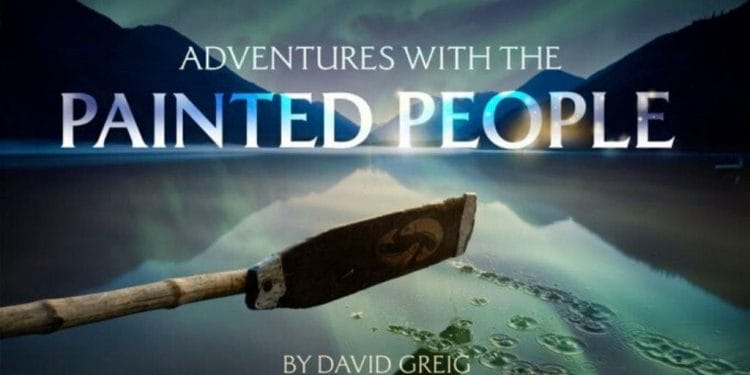 After the unfortunate news that The Royal Lyceum Theatre in Edinburgh and Pitlochry Festival Theatre would both be postponing the remainder of their upcoming shows scheduled to conclude their Summer 2020 season, like so many other respected theatres, due to the Covid-19 pandemic, its’ uplifting when some of the projects that they were working on are able to find life on different platforms. It’s even more uplifting when these projects seem to thrive on these newly assigned platforms. This is definitely the case for artistic director of The Lyceum David Greig’s first original play since 2013, Adventures With The Painted People. Directed by Elizabeth Newman, artistic director of Pitlochry Festival Theatre, the hour and a half long drama premiered on BBC Radio 3 on the 7th June 2020.
After the unfortunate news that The Royal Lyceum Theatre in Edinburgh and Pitlochry Festival Theatre would both be postponing the remainder of their upcoming shows scheduled to conclude their Summer 2020 season, like so many other respected theatres, due to the Covid-19 pandemic, its’ uplifting when some of the projects that they were working on are able to find life on different platforms. It’s even more uplifting when these projects seem to thrive on these newly assigned platforms. This is definitely the case for artistic director of The Lyceum David Greig’s first original play since 2013, Adventures With The Painted People. Directed by Elizabeth Newman, artistic director of Pitlochry Festival Theatre, the hour and a half long drama premiered on BBC Radio 3 on the 7th June 2020.
The piece focuses on Eithne, a Pictish woman, whose tribe has captured a Roman officer by the name of Lucius, intending to sacrifice him to the gods. Instead, Eithne agrees to rescue Lucius in return for being taught how to read and write. As they help each other reach their respective destinations, they discuss heritage, culture and their unlikely friendship.
David Greig’s use of language in Adventures With The Painted People serves the piece particularly well. The dialogues rhythm and flow couples with the poetic imagery of the River Tay, making it especially pleasant as an entirely aural experience, inviting the audience to use their imagination to envision the environment where the characters converse. The writing, in collaboration with Newman’s tender and heartfelt direction make the piece feel like a cosy folk-tale told around a campfire in the very kind of place where the piece takes place.
The sound design is almost certainly the highlight of the piece, the most immersive element when it comes to understanding and appreciating the serene environment of the River Tay. The constant background noises of birdsong, babblings of rivers and distant celebration sounds of townsfolk place the listener in the very heart of the action. Ben Occhipinti’s original score is also atmospheric and effective in building the world around its audience.
Kirsty Stuart’s performance as Eithne is playful yet powerful, a highlight being her character’s monologue about the contrasts between the two character’s lifestyles. The monologue is an emotionally intelligent passion piece which, while set 2000 years in the past, proves to be refreshingly relevant in today’s political landscape.
Lucius is portrayed by Olivier Huband, who executes the role with grace and gravitas. His poetic delivery captures the cultured and sophisticated essence of the character, and is a fundamental part of the excellent chemistry that the two share.
In times where thoughts of uncertainty about the future of the theatre industry are abundant, it is promising to see pieces scheduled for premier on stage later this year to be able to be adapted for other platforms, especially when they seem to take on a completely new life when on these platforms. Not only is Adventures With The Painted People a thoroughly enjoyable piece of theatre, but also a reassurance that the heart of Scottish theatre will continue to beat on for a considerable amount of time.

















